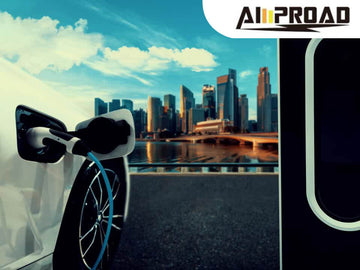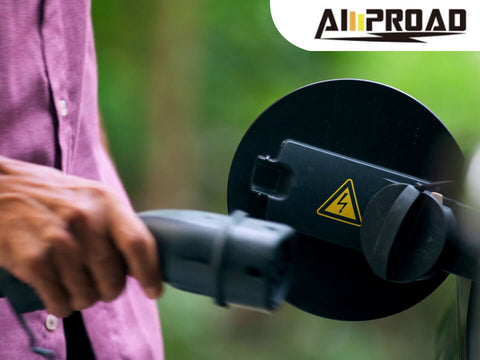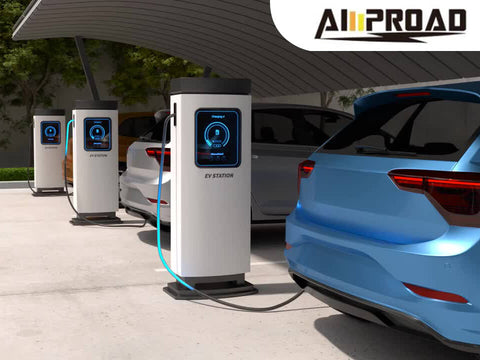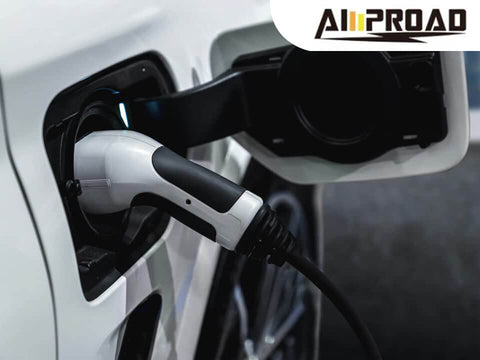
Fast charging, while convenient, poses a significant challenge for electric vehicle (EV) owners: battery degradation. Rapid charging generates excess heat, accelerating wear and tear on the battery over time. This degradation can lead to reduced battery capacity and overall performance, affecting the longevity of the EV. Minimizing battery degradation is crucial for maintaining optimal EV performance and ensuring its longevity. By implementing strategies to mitigate the impact of fast charging, EV owners can preserve their battery's health, extend its lifespan, and maximize their vehicle's efficiency and reliability for years to come. In this article, we'll explore the importance of minimizing battery degradation and provide actionable tips to help EV owners protect their investment and get the most out of their electric vehicles.
Get to Know Fast Charging
Fast charging is a convenient method for quickly replenishing an electric vehicle's battery, but it's essential to grasp how it works and its potential consequences for battery health.
When you plug your EV into a fast EV charger, it delivers a higher voltage and current to the battery than standard charging methods. This increased power allows for rapid charging, significantly reducing the time needed to reach a full charge.
However, this accelerated charging process comes with drawbacks, particularly concerning battery health. The heightened voltage and current result in increased heat generation within the battery cells. This excess heat can lead to accelerated degradation of the battery, causing it to lose capacity and efficiency over time.
Battery degradation is a natural process that occurs with each charging cycle, but fast charging exacerbates this effect due to the elevated temperatures generated during rapid charging sessions. Over time, the cumulative impact of fast charging can result in diminished battery performance and range, ultimately affecting the overall longevity of the electric vehicle.
Understanding the mechanisms behind fast charging and its implications for battery health is crucial for electric vehicle owners. While fast charging offers convenience, it's essential to balance rapid charging with measures to mitigate battery degradation. By adopting strategies to minimize the impact of fast charging, such as monitoring charging frequency, optimizing charging speeds, and managing charging temperatures, EV owners can prolong their battery's lifespan and maintain optimal performance over the long term.
How to Minimize the Impact of Fast Charging?
Monitor Charging Frequency and Usage
Frequent fast charging can accelerate battery degradation due to the increased heat generated during rapid charging sessions. To minimize this impact, it's essential to limit fast charging to when necessary, such as during long trips or emergencies. By reducing the frequency of fast charging and relying on slower charging methods for daily use, EV owners can preserve their battery's health and longevity.
Optimize Charging Speed
Charging at lower speeds can significantly reduce heat generation and stress on the battery, mitigating the risk of degradation. Whenever possible, consider using slower charging options such as Level 2 EV charger or overnight charging. While these methods may take longer to fully charge the battery, they offer gentler charging rates that are less likely to cause damage over time.
Manage Charging Temperature
High temperatures during fast charging can exacerbate battery degradation, particularly in extreme weather conditions. To minimize this risk, avoid fast charging when temperatures are excessively hot or cold. Additionally, consider pre-cooling the battery before fast charging to maintain optimal operating temperatures. By managing charging temperature effectively, EV owners can protect their battery from unnecessary wear and extend its lifespan.
Utilize Smart Charging Features
Many modern EVs come equipped with smart charging capabilities that allow users to schedule charging times and optimize battery health. By taking advantage of these features, EV owners can minimize the impact of fast charging on battery longevity. Schedule charging sessions during off-peak hours when electricity demand is lower, reducing the likelihood of fast charging-induced degradation. Additionally, some smart charging systems can adjust charging rates based on battery temperature and state of charge, further optimizing battery health and performance.
Thus, minimizing the impact of fast charging on EV battery health requires a proactive approach and strategic use of charging methods. By monitoring charging frequency, optimizing charging speed, managing charging temperature, and utilizing smart charging features, EV owners can protect their battery from premature degradation and ensure long-term performance and reliability. By adopting these practices, EV owners can enjoy the convenience of fast charging without compromising the longevity of their battery.
Is Regular Battery Maintenance Important in Minimizing EV Battery Degradation?
Regardless of charging habits, regular battery maintenance plays a crucial role in minimizing electric vehicle (EV) battery degradation and ensuring long-term performance and reliability.
Following manufacturer guidelines for battery maintenance is essential for maximizing the lifespan of your EV battery. This includes adhering to recommended charging practices, such as avoiding frequent fast charging and optimizing charging speed and temperature.
In addition to charging habits, software updates provided by the manufacturer are vital for optimizing battery performance and addressing any potential issues that may impact battery health. These updates may include improvements to battery management systems, charging algorithms, and thermal management strategies, all of which contribute to minimizing degradation over time.
Periodic health checks are another essential aspect of battery maintenance. These checks allow technicians to assess the overall health and condition of the battery, identify any potential issues early on, and take corrective measures to prevent further degradation. Regular inspections can also help detect and address factors such as cell imbalance, thermal runaway, and capacity loss, which can contribute to accelerated degradation if left unchecked.
In addition to following manufacturer guidelines, there are several proactive steps EV owners can take to minimize battery degradation and prolong the lifespan of their battery:
Avoid Deep Discharges: Deep discharges can put undue stress on the battery and accelerate degradation. Instead, aim to maintain a consistent state of charge within the recommended operating range.
Limit Exposure to Extreme Temperatures: Extreme heat or cold can adversely affect battery performance and contribute to degradation. Whenever possible, park your EV in a shaded area or garage to protect the battery from temperature extremes.
Practice Gentle Driving Habits: Aggressive driving, rapid acceleration, and hard braking can increase battery load and heat generation, accelerating degradation. Drive smoothly and avoid unnecessary strain on the battery.
To top it off, regular battery maintenance is essential for minimizing EV battery degradation and ensuring optimal performance and longevity. By following manufacturer guidelines, staying updated on software updates, and conducting periodic health checks, EV owners can protect their investment and enjoy reliable performance from their electric vehicles for years to come.
Strategies for Preserving EV Battery Health
minimizing the impact of fast charging on electric vehicle (EV) battery health is crucial for ensuring optimal performance and longevity. By implementing the following strategies, EV owners can protect their battery from premature degradation:
Firstly, monitoring charging frequency and usage to limit fast charging to when necessary, such as during long trips or emergencies.
Secondly, optimizing charging speed by utilizing slower charging options like Level 2 charging or overnight charging whenever possible to reduce heat generation and stress on the battery.
Thirdly, managing charging temperature by avoiding fast charging in extreme weather conditions and pre-cooling the battery when necessary to maintain optimal operating temperatures.
Finally, utilizing smart charging features to schedule charging times and optimize battery health, taking advantage of off-peak hours and adjusting charging rates based on battery temperature and state of charge.
It's important to balance the convenience of fast charging with the long-term health of the battery for optimal EV performance and sustainability. By following these strategies, EV owners can prolong the lifespan of their battery, maximize their vehicle's efficiency, and contribute to a greener and more sustainable future of transportation. Remember, a little care goes a long way in ensuring your EV remains reliable and efficient for many miles to come.
FAQs / People Also Ask
Q1: What is fast charging, and why is it a concern for EV battery health?
Fast charging delivers a higher voltage and current to the battery, allowing for rapid charging. However, it can generate excess heat, accelerating battery degradation over time.
Q2: How does frequent fast charging affect EV battery health?
Frequent fast charging can accelerate battery degradation due to increased heat generation. Over time, this can lead to reduced battery capacity and overall performance.
Q3: Are there alternatives to fast charging that are gentler on the battery?
Yes, slower charging options like EVSE Level 2 chargers or overnight charging are gentler on the battery as they produce less heat. While they may take longer to charge, they help minimize battery degradation.
Q4: How can I manage charging temperature to minimize battery degradation?
Avoid fast charging in extreme temperature conditions, as high temperatures can exacerbate battery degradation. Additionally, pre-cooling the battery before fast charging can help maintain optimal operating temperatures.
Q5: Are there any smart charging features that can help minimize the impact of fast charging on battery health?
Many EVs come equipped with smart charging capabilities that allow users to schedule charging times and optimize battery health. By charging during off-peak hours and adjusting charging rates based on battery temperature, smart charging features can help minimize the impact of fast charging on battery longevity.





